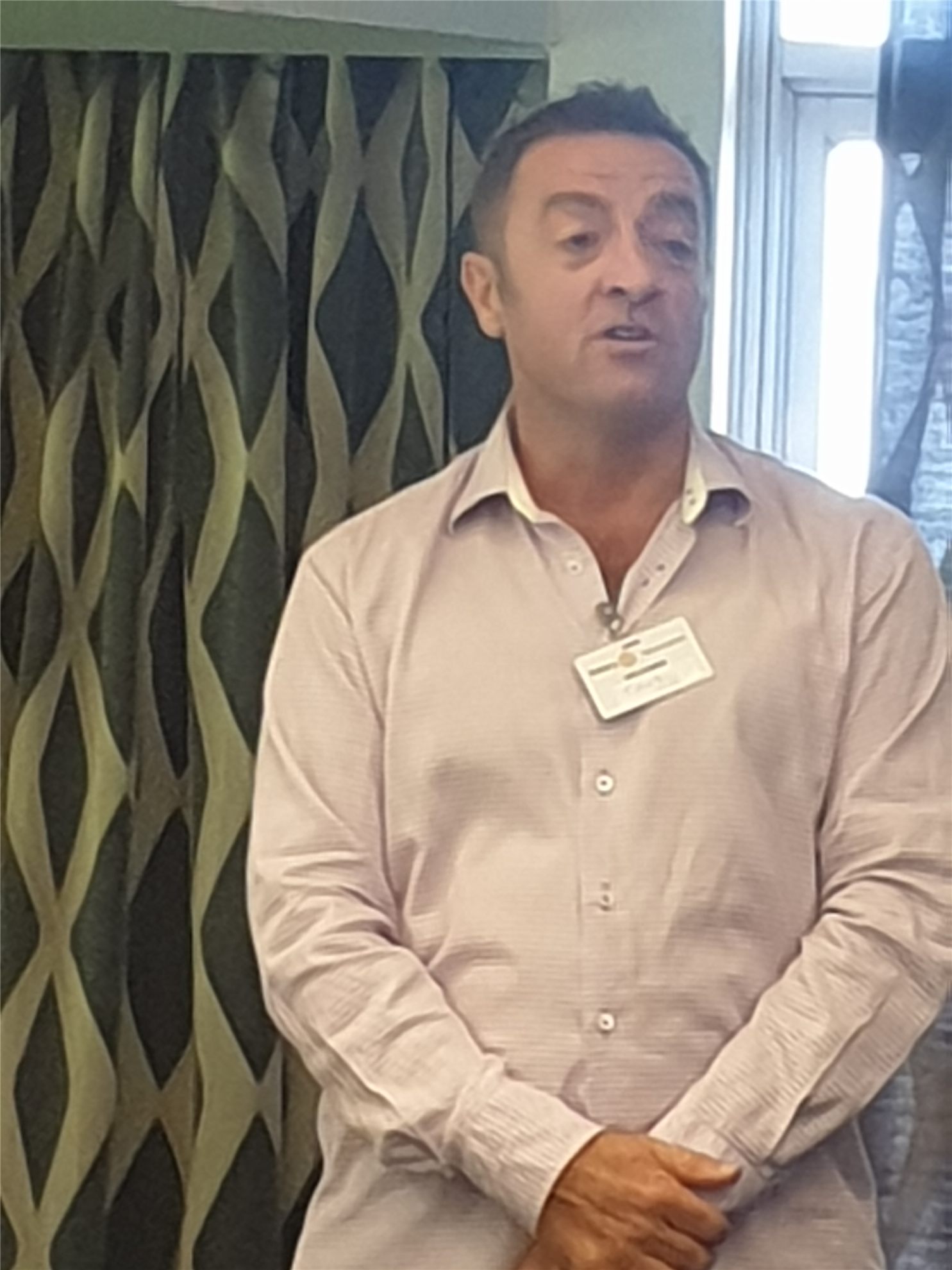 Guest speaker Timothy Giles a full-time facilitator who delivers programs to the commercial and community sector, providing leadership development the fields of resilience innovation culture. Timothy is also a trustee of Headway, the Brain Injury Association.
Guest speaker Timothy Giles a full-time facilitator who delivers programs to the commercial and community sector, providing leadership development the fields of resilience innovation culture. Timothy is also a trustee of Headway, the Brain Injury Association.In opening Timothy took the opportunity to thank Rotary for a scholarship he received from Rotary some 30 years ago when he was recognised as young Linda of the year.
That scholarship enabled him to travel to the United States to engage in training as a facilitator and and generally expand his knowledge and understanding in the field. Rotary was a springboard to what he did and gave him an enhanced opportunity for which he is entirely grateful.
Timothy mentioned as part of his address on resilience that he knows and works with Ben Mugushu, a member of our club.
Ben as members will remember came to New Zealand as a refugee from a part of Africa wracked with conflict and genocide. Ben saw and experienced things that a young child as he then was should never have seen. Be took a law degree at Auckland University in his fifth language and now works at Meredith Connell, Crown Solicitor.
Timothy made the comment that Ben is a gift to our country and his success is derived in effect from his own resilience.
Timothy then moved on to talk about resilience and what it is from his perspective. In general terms it is the ability to recover from difficulties after stress and formation.
In other words the ability to bounce back.
Timothy moved on from this point to detailing how he brings resilience into his life following his own experience in recovering from 2 brain injuries caused by an assaults and a sports injury which leave him fatigued, experiencing memory loss and some impairment.
To deal with that and have a life Timothy has a three-step program;
- each day he begins by noting five things which he has grateful and at the end of the day and thinking of five further things which she has grateful
- at the end of each day he gives thanks for those five things for which he is grateful.
- and each day he gives thanks or gracious acknowledgement to someone for something that they may have done in that day to improve the lives of others.
Without these elements Timothy does not have a great day. If he does follow this path then he has a happier day and can move on. Finding the event or incident that enables Timothy to acknowledge or validate or praise a person for doing something, or not doing something, is an investment Timothy makes in his life to improve not only has well-being but others. After the trauma that Timothy has experienced it is this program which creates for him the resilience that gives him the good days.
The resilience for he creates the good days. Not following the path is a step backward for he for him. His view is that if we employ this approach to our lives then we will improve not only our well being but others.
An interesting address from some-one with skin in the game.
